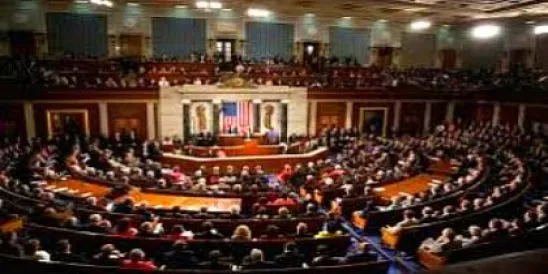On March 29 the US House of Representatives adopted by voice vote an amendment offered by Reps. Dan Crenshaw (R-TX) and August Pfluger (R-TX) to speed up Environmental Protection Agency (EPA) review of state applications for primacy to run the Class VI Underground Injection Control (UIC) program. The amendment was included in H.R. 1, the Lower Energy Costs Act, the high-profile energy and permitting reform bill the House approved on March 30.
The UIC program is designed to prevent endangerment of underground sources of drinking water from subsurface injections. The Class VI program specifically regulates the geologic sequestration of carbon dioxide, which is considered to be essential for the world to meet international emission reduction targets.
The UIC program may be administered by the states in lieu of EPA upon EPA approval of a state program. Many states have obtained primacy to run the UIC program for other well classes. Class VI is the newest well class, adopted in 2010. Only two states, North Dakota and Wyoming, have been approved to run that program. However, with the dramatic increase in interest in carbon capture utilization and storage (CCUS) over the past several years, more states are now preparing to apply for Class VI primacy.
The Safe Drinking Water Act, the federal law governing the UIC program, requires EPA to approve, partially approve, or disapprove a state primacy application “[w]ithin 90 days after the State’s application . . . and after a reasonable opportunity for presentation of views.” However, Louisiana applied for Class VI primacy in April 2021, and EPA has not yet made a determination on its application. A number of other states either have made a preliminary application or are preparing to apply.
The Crenshaw-Pfluger amendment would require that, if EPA has not approved, partially approved, or denied a state application within 270 days, the application shall be “deemed approved” if the EPA hasn’t issued a decision within another 30 days and if the state has established an effective program to prevent endangerment of underground sources of drinking water.
A significant benefit to project applicants of state primacy is speed of decision-making. In the few years since North Dakota was granted primacy, it has issued more Class VI permits than EPA issued for the rest of the country since the inception of the Class VI program.
EPA has the resources to review and approve state primacy applications quickly. The 2021 Infrastructure Investment and Jobs Act included $50 million for grants to states to establish and operate a state Class VI program in lieu of EPA and for EPA to carry out the grant program through FY 2026.
The Senate is expected to take up a permitting reform bill sometime this year. Senate Majority Leader Chuck Schumer (D-NY) called H.R. 1 a “nonstarter” as a basis for bicameral negotiations. Nevertheless, we expect the issue of Class VI primacy to feature in Senate permitting reform negotiations, particularly given the growing number of states that reportedly are working on primacy applications. States that have applied for Class VI primacy or officially have announced plans to do so include, at a minimum, Arizona, Louisiana, Pennsylvania, Texas, and West Virginia.




 />i
/>i
